
The Heartbeat of Reykjavik: Downtown Reykjavik
Discover the vibrant core of Reykjavik with its colorful streets, cultural landmarks, diverse culinary scene, and lively nightlife in Downtown Reykjavik.
Downtown Reykjavik is the vibrant core of Iceland's capital city, where modernity meets tradition. As you stroll through its charming streets, you'll encounter a delightful mix of colorful buildings, lively cafes, and unique boutiques. The neighborhood is a cultural hub, with an array of museums, art galleries, and historical landmarks that offer a glimpse into Iceland's rich history and contemporary culture. One of the must-see attractions in Downtown Reykjavik is the iconic Hallgrimskirkja, a striking church that offers panoramic views of the city from its tower. Nearby, you'll find the bustling Laugavegur street, lined with shops selling everything from Icelandic woolens to cutting-edge fashion. Foodies will rejoice in the diverse culinary scene, featuring everything from traditional Icelandic dishes to international cuisine. As you explore, you'll also discover the city's vibrant nightlife, with a variety of bars, clubs, and live music venues. Whether you're looking to immerse yourself in Icelandic culture or simply enjoy the lively atmosphere, Downtown Reykjavik offers an unforgettable experience for every visitor.
Local tips in Downtown Reykjavik
- Visit Hallgrimskirkja early in the morning to avoid crowds and enjoy a peaceful view from the tower.
- Wear comfortable walking shoes, as the best way to explore Downtown Reykjavik is on foot.
- Check out the local events calendar for cultural festivals and live music performances during your visit.
- Try traditional Icelandic food like lamb soup and skyr at local eateries for an authentic culinary experience.
- Beware of the unpredictable weather; always carry a light jacket or umbrella.
The Heartbeat of Reykjavik: Downtown Reykjavik
Downtown Reykjavik is the vibrant core of Iceland's capital city, where modernity meets tradition. As you stroll through its charming streets, you'll encounter a delightful mix of colorful buildings, lively cafes, and unique boutiques. The neighborhood is a cultural hub, with an array of museums, art galleries, and historical landmarks that offer a glimpse into Iceland's rich history and contemporary culture. One of the must-see attractions in Downtown Reykjavik is the iconic Hallgrimskirkja, a striking church that offers panoramic views of the city from its tower. Nearby, you'll find the bustling Laugavegur street, lined with shops selling everything from Icelandic woolens to cutting-edge fashion. Foodies will rejoice in the diverse culinary scene, featuring everything from traditional Icelandic dishes to international cuisine. As you explore, you'll also discover the city's vibrant nightlife, with a variety of bars, clubs, and live music venues. Whether you're looking to immerse yourself in Icelandic culture or simply enjoy the lively atmosphere, Downtown Reykjavik offers an unforgettable experience for every visitor.
Iconic landmarks you can’t miss
The Settlement Exhibition
Explore the Viking roots of Icelandic culture at The Settlement Exhibition, a captivating local history museum in the heart of Reykjavik.
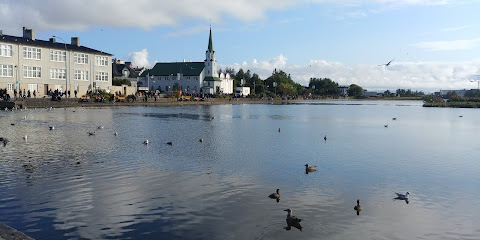
Lækjartorg
Discover the tranquility of Lækjartorg, a picturesque park in Reykjavik where nature and urban life harmoniously blend.
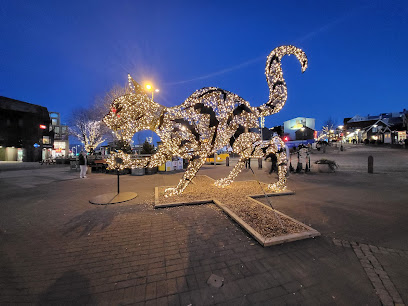
The Unknown Bureaucrat
Explore The Unknown Bureaucrat in Reykjavik: A captivating sculpture reflecting the essential roles of unsung heroes in society.
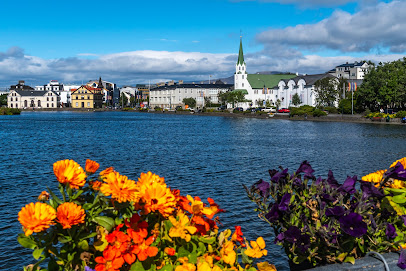
Harbor in Reykjavik
Experience Reykjavik's charming harbor, where stunning views, artistic sculptures, and vibrant maritime life create an unforgettable atmosphere.
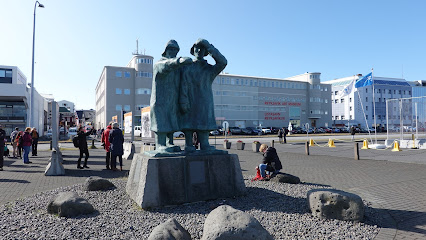
The Black Cone, Monument to Civil Disobedience
Explore The Black Cone, a powerful monument in Reykjavik honoring civil disobedience and the fight for justice in Iceland's history.
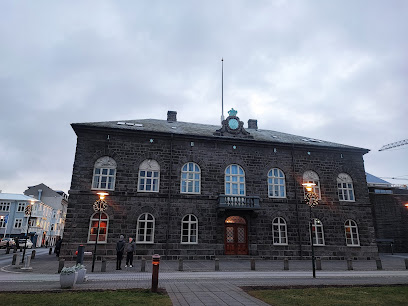
Aðalstræti 10 - Reykjavík City Museum
Explore Reykjavik's rich history at the City Museum, showcasing Iceland's cultural evolution from Viking times to the modern era.
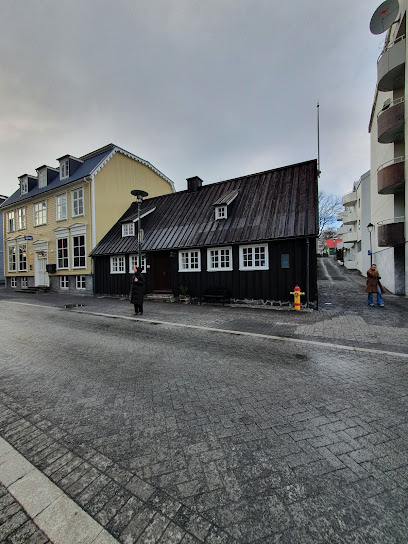
Reykjavík's Rich Street Art
Discover the colorful and captivating street art in Reykjavík, where every mural tells a story and reflects the city's vibrant culture.
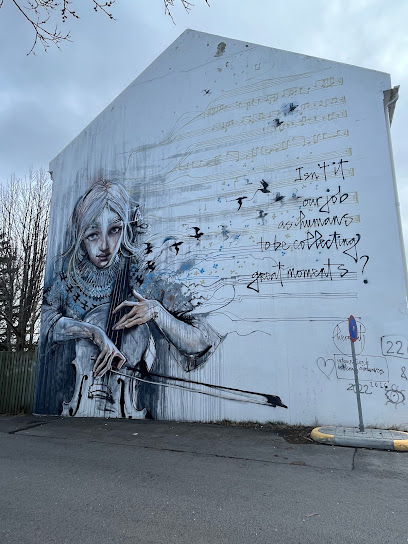
Eisenbahn-Denkmal
Discover Reykjavik's Eisenbahn-Denkmal, a historical landmark that showcases the city's rich railway heritage and invites you to explore its storied past.
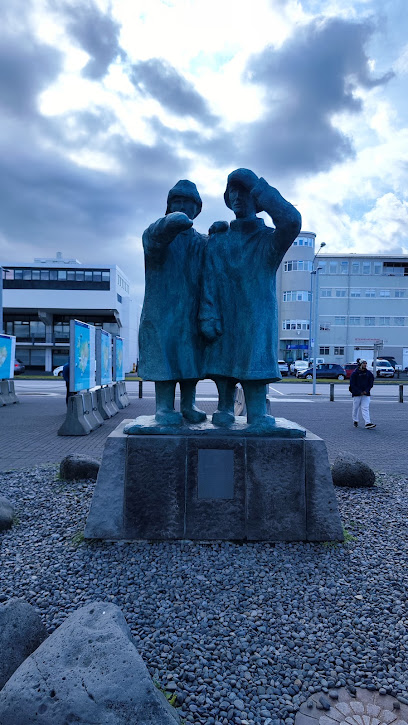
Door from 1927 in downtown Reykjavík
Explore Reykjavik’s rich history through the iconic Door from 1927, a charming landmark steeped in architectural significance.
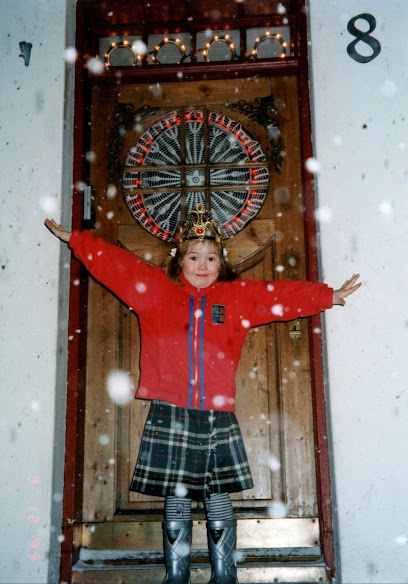
Fahrräder Kunst
Explore Fahrräder Kunst in Reykjavik: A unique tourist attraction celebrating art and cycling with captivating exhibits and local creativity.
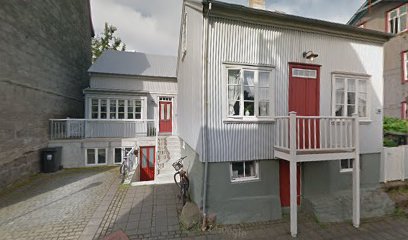
Essential places to dine
Icelandic Street Food
Experience authentic Icelandic cuisine at Icelandic Street Food in Reykjavík - where tradition meets taste in every delicious dish.
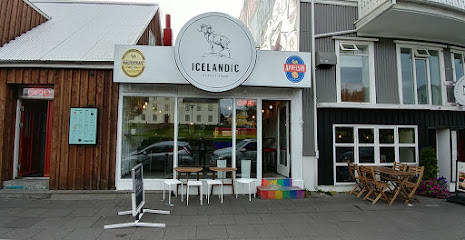
Íslenski barinn
Experience authentic Icelandic cuisine at Íslenski Barinn, where tradition meets modern culinary delights in Reykjavík.
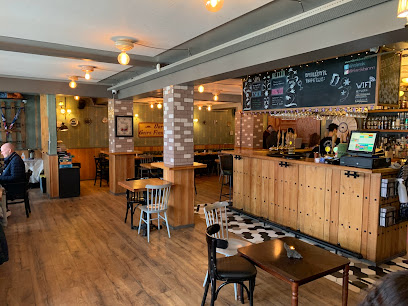
Grillmarkaðurinn
Discover exceptional Icelandic cuisine at Grillmarkaðurinn - where local ingredients meet modern grilling techniques in Reykjavík.
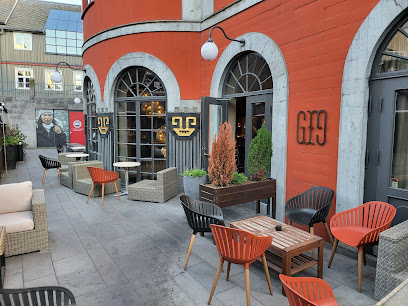
Kol Restaurant
Discover exquisite Icelandic cuisine at Kol Restaurant in Reykjavík, where tradition meets modern culinary excellence.
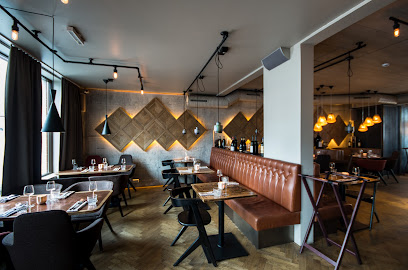
Kopar
Discover exquisite Icelandic flavors at Kopar in Reykjavík – where local ingredients meet stunning harbor views.
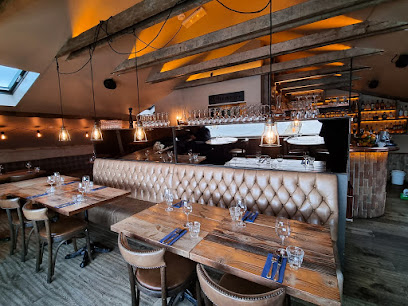
Höfnin Restaurant
Savor authentic Icelandic flavors at Höfnin Restaurant – where fresh seafood meets traditional cuisine in Reykjavík's vibrant dining scene.
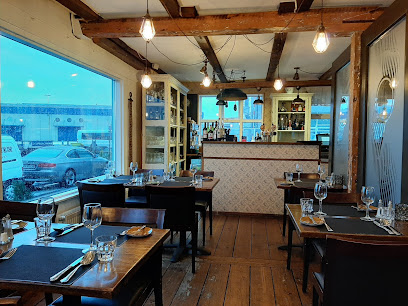
Foodcellar
Experience the essence of Icelandic cuisine at Foodcellar—where tradition meets innovation in every bite.
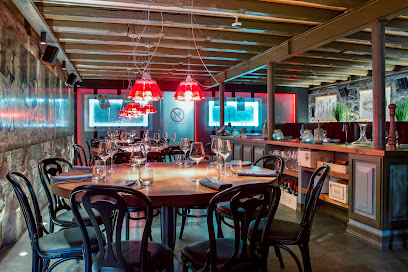
Fjallkonan
Discover authentic Icelandic cuisine at Fjallkonan, where tradition meets modern dining in Reykjavík's vibrant heart.
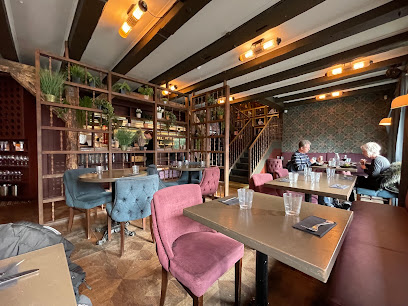
Duck & Rose
Experience exquisite Icelandic flavors at Duck & Rose – where fresh ingredients meet exceptional service in Reykjavík's vibrant heart.
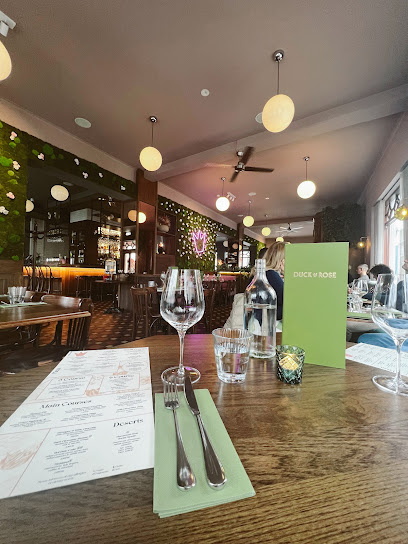
TIDES Restaurant
Savor authentic Icelandic flavors at TIDES Restaurant in Reykjavík with stunning harbor views and a commitment to sustainability.
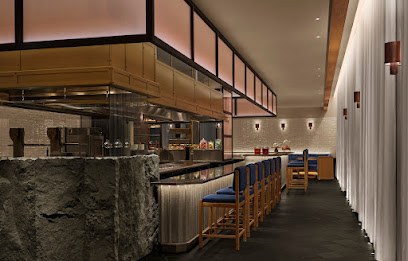
Markets, malls and hidden boutiques
Polarbear Gift Store
Discover the essence of Iceland at Polarbear Gift Store, where unique souvenirs and traditional crafts await every traveler.
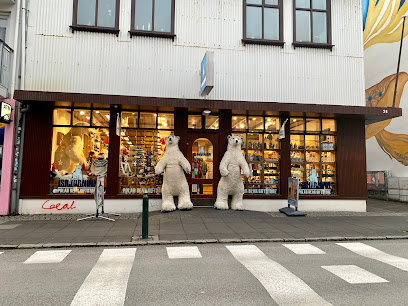
Húrra Reykjavík
Discover unique Icelandic fashion at Húrra Reykjavík, the ultimate clothing store in the heart of Reykjavik, blending local flair with contemporary style.
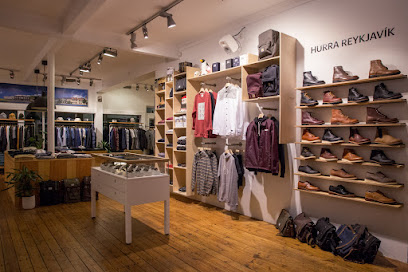
Nordic Store
Explore the Nordic Store in Reykjavík for authentic Icelandic knitwear, unique souvenirs, and quality yarn in a charming atmosphere.
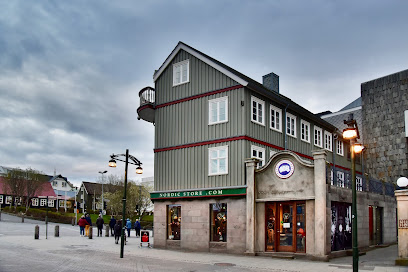
Old Harbour Souvenirs
Explore Old Harbour Souvenirs for authentic Icelandic gifts, clothing, and unique handmade crafts in the heart of Reykjavik.
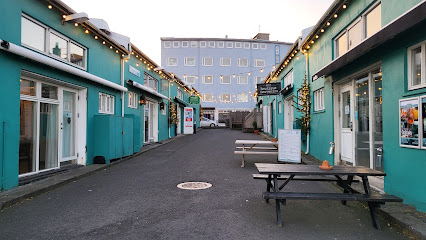
Thorvaldsens Bazar
Explore Thorvaldsens Bazar in Reykjavík for unique Icelandic souvenirs and handcrafted treasures that reflect the spirit of this beautiful country.
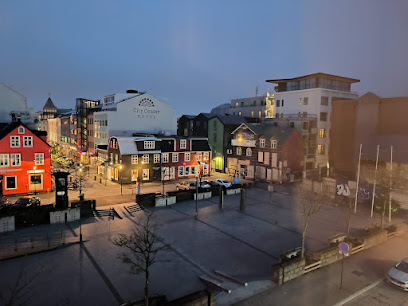
Shopicelandic
Explore Shopicelandic for unique Icelandic souvenirs, handmade crafts, and the perfect gifts to remember your trip to Reykjavik.
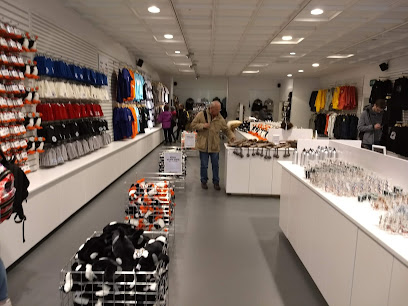
The Heart of Reykjavik
Explore the essence of Iceland at The Heart of Reykjavik, a delightful gift shop showcasing local crafts and unique souvenirs for every traveler.
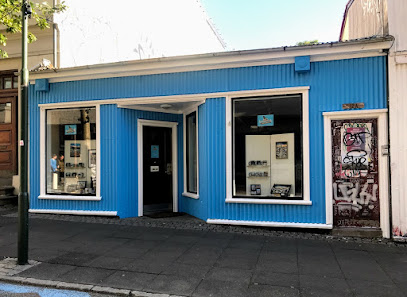
Saga Store
Discover authentic Icelandic souvenirs and crafts at Saga Store in the heart of Reykjavík, a true reflection of Icelandic culture and artistry.
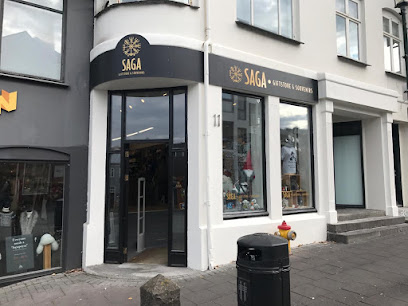
Reykjavík boutique (Reykjavík treats)
Explore Reykjavík Boutique for authentic Icelandic treats and unique souvenirs that showcase local craftsmanship and culture in the heart of the city.
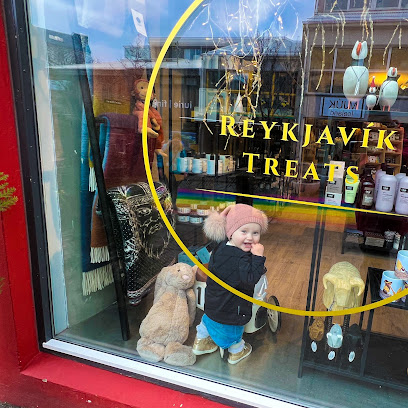
Svartbysvart & Friends
Explore the essence of Icelandic craftsmanship at Svartbysvart & Friends, your one-stop destination for unique gifts and stylish accessories.
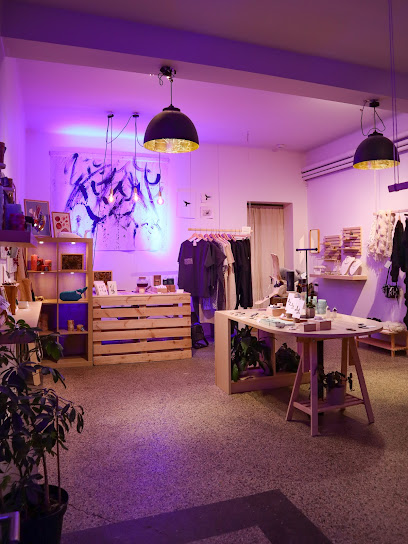
Essential bars & hidden hideouts
Lebowski Bar
Experience the quirky charm of the Lebowski Bar in Reykjavík, where themed decor meets a vibrant atmosphere and delicious cocktails.
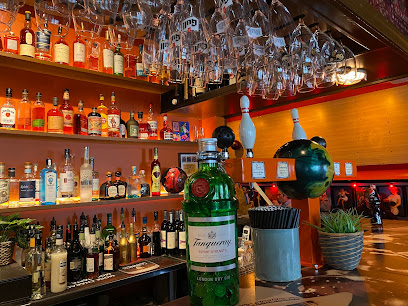
The Drunk Rabbit Irish Pub
Experience the authentic taste of Ireland at The Drunk Rabbit Irish Pub in Reykjavík, where hearty food and lively atmosphere meet.
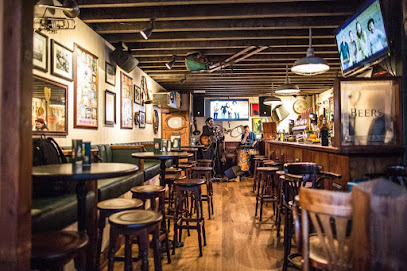
Skúli Craft bar
Discover the vibrant taste of Iceland at Skúli Craft Bar, where local craft beers and artisanal spirits await in the heart of Reykjavík.
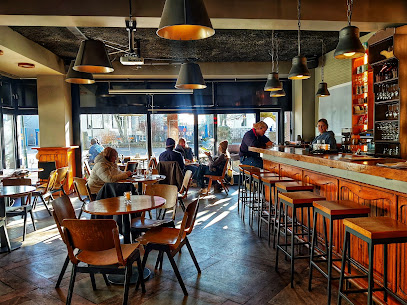
SKY Bar
Discover the breathtaking views and vibrant atmosphere of SKY Bar, the perfect venue for cocktails and relaxation in Reykjavík.
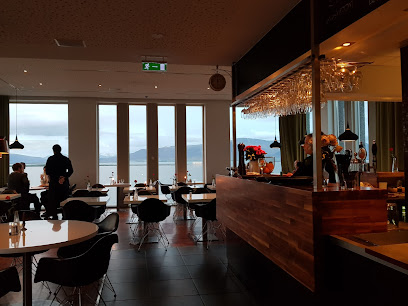
Jungle Cocktail Bar
Discover the vibrant Jungle Cocktail Bar in Reykjavík, where innovative drinks and a lively atmosphere create the perfect nightlife experience.
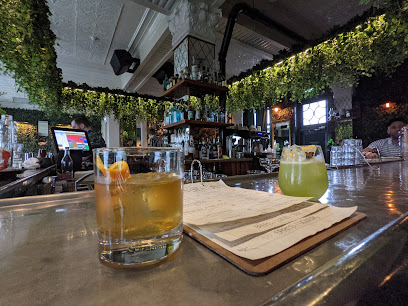
Skuggi Bar
Experience the vibrant nightlife of Reykjavík at Skuggi Bar, where cozy ambiance meets a fantastic selection of drinks.
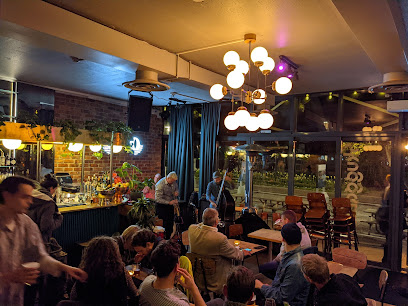
Drykk Bar
Discover the enchanting Drykk Bar in Reykjavík, where expertly crafted cocktails and a vibrant atmosphere await you.
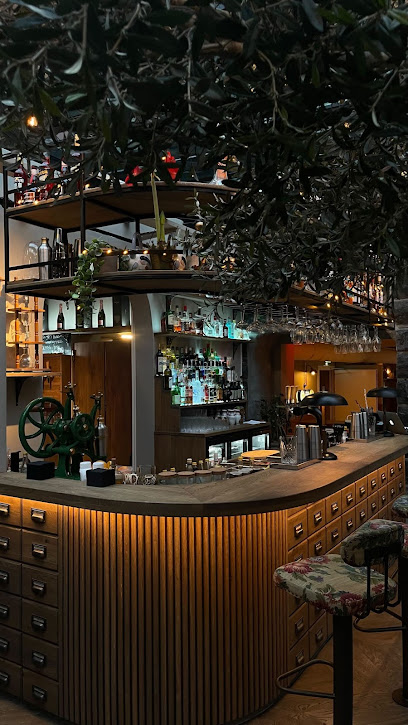
THE ROOF at EDITION
Discover stunning views and exquisite cocktails at The Roof at EDITION, Reykjavik's premier rooftop bar for an unforgettable nightlife experience.
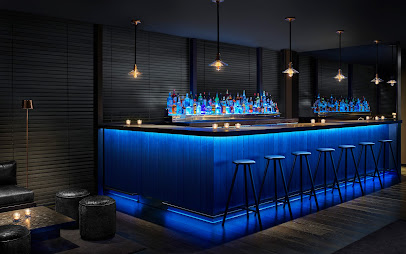
Tölt Cocktail Bar at The Reykjavik EDITION
Discover the vibrant cocktail scene at Tölt Cocktail Bar, where expertly crafted drinks meet Icelandic charm in Reykjavik's trendy nightlife.
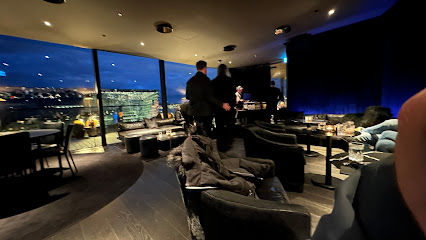
The Downtown Bar
Experience the lively atmosphere of The Downtown Bar in Reykjavík, with local drinks and a welcoming vibe that captures the essence of Icelandic nightlife.
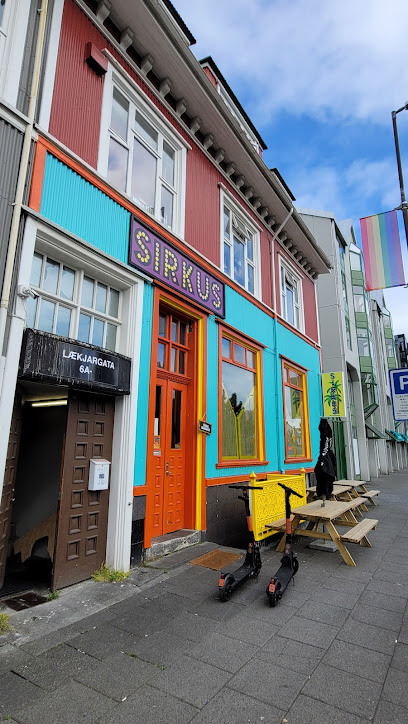
Local Phrases
-
- HelloHalló
[HAH-loh] - GoodbyeBless
[BLESS] - YesJá
[YOW] - NoNei
[NAY] - Please/You're welcomeTakk fyrir
[TAHK fur-EAR] - Thank youTakk
[TAHK] - Excuse me/SorryAfsakið
[AHF-sah-kith] - How are you?Hvernig hefur þú það?
[KVER-nik HEH-ur THOO thad] - Fine. And you?Í lagi. Og þú?
[EE LAH-gee. Ohg thoo] - Do you speak English?Talar þú ensku?
[TAH-lar thoo ENS-koo] - I don't understandÉg skil ekki
[Yeh shkil EHK-ki]
- HelloHalló
-
- I'd like to see the menu, pleaseÉg myndi vilja sjá matsedilinn, væri það svo snjallt?
[Yeh MIN-dee VIL-yah shah mat-SEH-dil-inn, VAI-ri thahth SVOH SNAHYT?] - I don't eat meatÉg borða ekki kjöt
[Yeh BOR-tha EHK-ki chyot] - Cheers!Skál!
[SKOWL] - I would like to pay, pleaseÉg væri að greiða, væri það svo snjallt?
[Yeh VAI-ri ath GREY-tha, VAI-ri thahth SVOH SNAHYT?]
- I'd like to see the menu, pleaseÉg myndi vilja sjá matsedilinn, væri það svo snjallt?
-
- Help!Hjálp!
[HYOWLP] - Go away!Farðu í burtu!
[FAR-thoo EE BUR-too] - Call the Police!Hringdu í lögregluna!
[HRING-doo EE LUR-eg-loo-na] - Call a doctor!Hringdu í lækninn!
[HRING-doo EE LAGH-nin] - I'm lostÉg er týndur
[Yeh air TEEN-thur] - I'm illÉg er veikur
[Yeh air VAY-kur]
- Help!Hjálp!
-
- I'd like to buy...Ég myndi vilja kaupa...
[Yeh MIN-dee VIL-yah KOY-pa...] - I'm just lookingÉg er bara að skoða
[Yeh air BAH-rah ath SKOH-tha] - How much is it?Hvað kostar það?
[Kvath KOS-tar thaht] - That's too expensiveÞað er of dýrt
[Thath air off DEER-t] - Can you lower the price?Getur þú lækkað verðið?
[GEH-tur thoo LYE-kath VER-dith]
- I'd like to buy...Ég myndi vilja kaupa...
-
- What time is it?Hvað er klukkan?
[Kvath air KLUK-kahn] - It's one o'clockKlukkan er eitt
[KLUK-kahn air eyt] - Half past (10)Hálftíu
[HOWLFT-yoo] - MorningMorgunn
[MORE-gun] - AfternoonEftirmiðdagur
[EFT-ir-MITH-thah-gur] - EveningKvöld
[KVEWLT] - YesterdayÍ gær
[EE GYI-ar] - TodayÍ dag
[EE dahg] - TomorrowÁ morgun
[OW MORE-gun] - 1Einn
[AYTHN] - 2Tveir
[TVAIR] - 3Þrír
[THREER] - 4Fjórir
[FYOR-ir] - 5Fimm
[FIMM] - 6Sex
[SEKS] - 7Sjö
[SYOH] - 8Átta
[OWT-ta] - 9Níu
[NEE-yu] - 10Tíu
[TEE-yu]
- What time is it?Hvað er klukkan?
-
- Where's a/the...?Hvar er...
[Kvar air] - What's the address?Hvað er heimilisfangið?
[Kvath air HAY-mil-is-fan-gith] - Can you show me (on the map)?Getur þú sýnt mér (á kortinu)?
[GEH-tur thoo SOWNT mair (owr KOR-ti-noo)] - When's the next (bus)?Hvenær er næsta (strætisvagn)?
[KVER-nair air NIGH-sta (STRY-teess-vahn)] - A ticket (to ....)Einn miði (til ....)
[AYTHN MEE-thee (til ....)]
- Where's a/the...?Hvar er...
History of Downtown Reykjavik
-
Reykjavik's history can be traced back to the Viking Age, around 874 AD, when Ingólfur Arnarson, the first permanent settler, established a home in the area. The name 'Reykjavik' translates to 'Smoky Bay', derived from the steam rising from hot springs in the region. This settlement laid the foundation for what would become Iceland's capital, with its strategic coastal location serving as a hub for trade and fishing.
-
In the 18th century, Reykjavik began to develop as a trading post. The Danish Crown granted the town the status of a trading town in 1786, which attracted merchants and sparked economic growth. This period marked the transition from a small fishing settlement to a burgeoning urban center, with the establishment of essential infrastructure including schools and churches.
-
The 19th century was a time of cultural awakening in Reykjavik, characterized by the rise of national consciousness and a flourishing of Icelandic literature and arts. This era saw the publication of significant literary works and the establishment of cultural institutions, including the Reykjavik Art Museum. The architecture of Downtown Reykjavik from this period reflects a blend of traditional Icelandic and European styles, showcasing the town's growing identity.
-
The interwar years witnessed significant urban development in Downtown Reykjavik. The city expanded beyond its original boundaries, with new residential areas and public buildings being constructed. The establishment of the National Theatre in 1950 and the development of various cultural institutions further solidified Reykjavik’s status as the cultural capital of Iceland.
-
Since the late 20th century, Downtown Reykjavik has transformed into a vibrant cultural and economic hub. With the rise of technology and creative industries, the area has become known for its lively arts scene, restaurants, and nightlife. Events such as the Reykjavik Arts Festival and the Reykjavik International Film Festival highlight the city's commitment to culture and creativity, attracting visitors from around the world.
Downtown Reykjavik Essentials
-
Downtown Reykjavik is easily accessible from various neighborhoods in the city. If you're coming from the airport, the Flybus offers a direct connection to the city center, taking about 45 minutes. From other neighborhoods, the public bus system, Strætó, operates frequent routes that connect to downtown. Taxis are also readily available and can be hailed on the street or booked via phone or app.
-
Downtown Reykjavik is compact and pedestrian-friendly, making walking the most enjoyable way to explore. Public buses (Strætó) serve the area extensively, with stops conveniently located throughout the downtown. Bicycles can be rented from various shops, and there are dedicated bike lanes. While there are no trains in the city, taxis are available for longer distances or late-night travel.
-
Reykjavik is considered one of the safest cities in the world, with a very low crime rate. However, it is always wise to remain vigilant, particularly in crowded tourist areas. Avoid isolated locations at night, especially along the waterfront. Petty crimes like pickpocketing can occur, so keep an eye on your belongings. As of now, there are no specific areas in Downtown Reykjavik known for high crime targeting tourists.
-
In case of an emergency, dial 112 for police, fire, or ambulance services. The main hospital in Reykjavik, Landspítali, is well-equipped to handle emergencies. Pharmacies are widely available throughout the downtown area for minor health issues, and it is advisable to have travel insurance that covers medical emergencies.
-
Fashion: Do dress in layers, as the weather can change quickly. Comfortable shoes are a must for walking. Don't wear overly formal attire, as casual clothing is the norm. Religion: Do respect local customs, especially when visiting churches. Photography may be restricted in some places. Public Transport: Do validate your bus ticket before boarding. Don’t eat or drink on public transport. Greetings: Do greet locals with a friendly 'Halló' and a smile. Don’t assume everyone speaks English; learning a few Icelandic phrases can be appreciated. Eating & Drinking: Do try traditional Icelandic dishes. Don't waste food; it's considered disrespectful.
-
To experience Downtown Reykjavik like a local, visit the Kolaportið flea market for unique souvenirs and local foods. Try to explore the city's vibrant street art and visit local cafes rather than international chains. Engage with locals by participating in community events or visiting local galleries. Take advantage of happy hour specials in bars and restaurants, which can offer great deals on food and drinks.
Trending Landmarks in Downtown Reykjavik
Nearby Cities to Downtown Reykjavik
-
Things To Do in Kopavogur
-
Things To Do in Hafnarfjordur
-
Things To Do in Keflavik
-
Things To Do in Hveragerdi
-
Things To Do in Grindavik
-
Things To Do in Borgarnes
-
Things To Do in Selfoss
-
Things To Do in Stykkisholmur
-
Things To Do in Olafsvik
-
Things To Do in Vik
-
Things To Do in Blonduos
-
Things To Do in Saudarkrokur
-
Things To Do in Isafjordur
-
Things To Do in Akureyri
-
Things To Do in Dalvik













